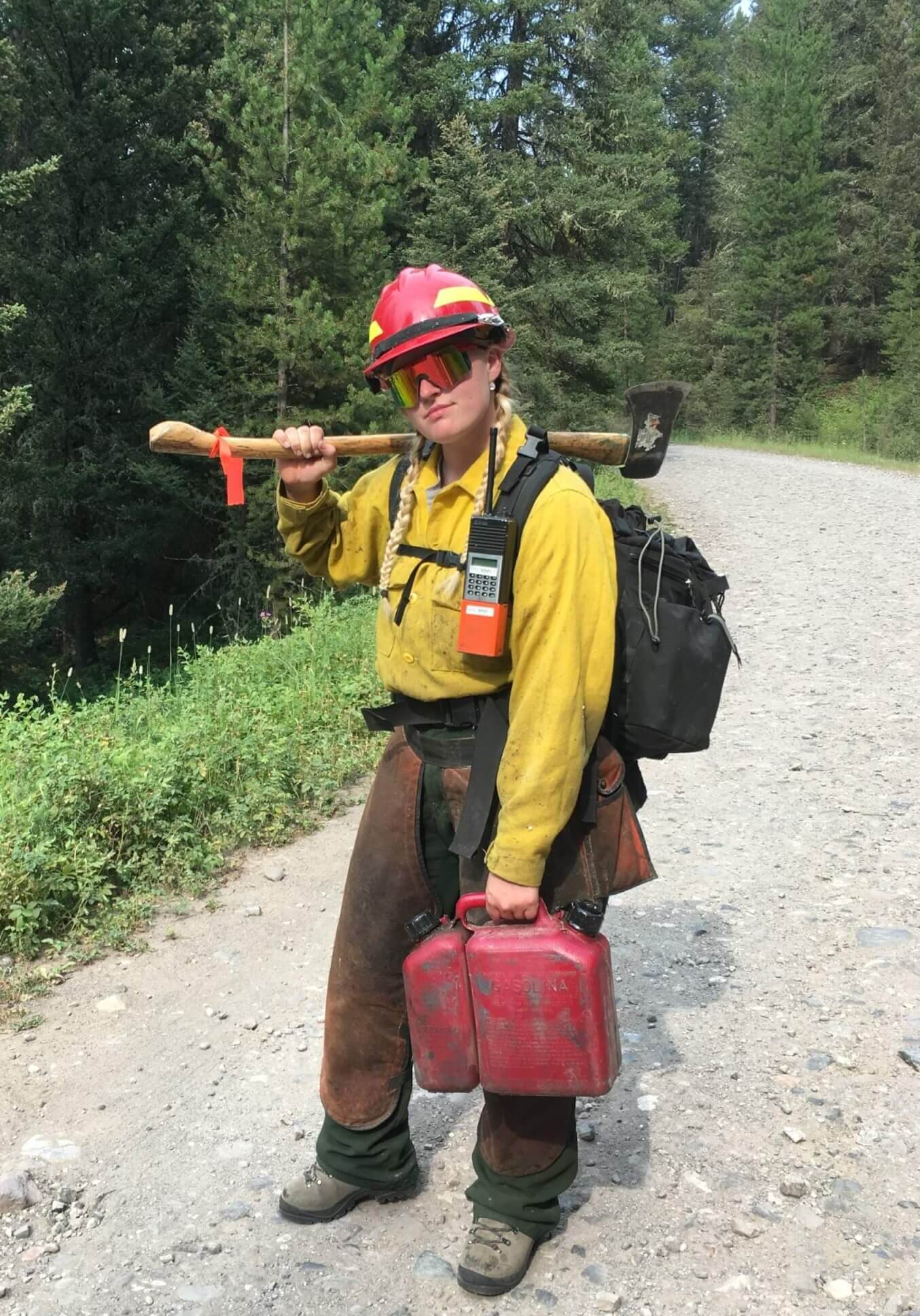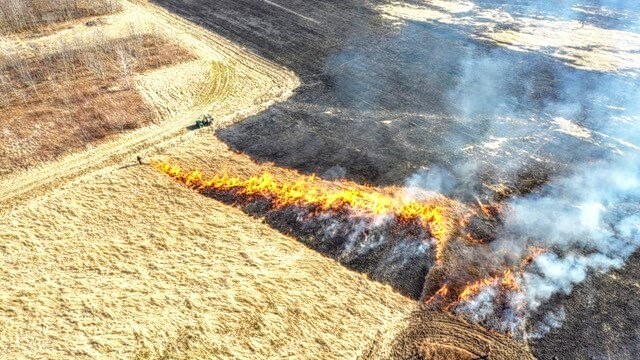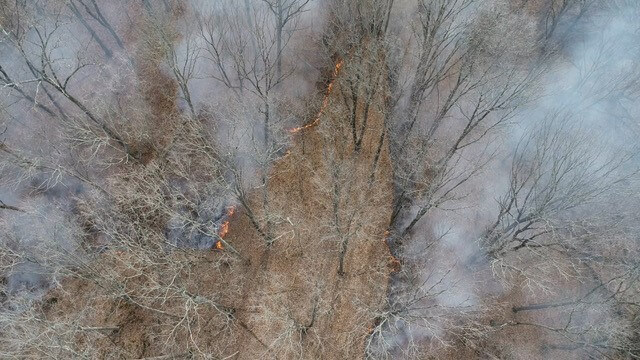When best laid plans go up in smoke: How this instructor is simulating fieldwork online
Rachel Brummet, a junior double majoring in wildlife and forestry in the Department of Forestry and Natural Resources (FNR), spent the summer of 2018 in Montana as a wildland firefighter. She gained plenty of experience with unplanned fires but she wasn’t exposed to the practice of prescribed burns, a conservation technique that utilizes controlled fires to improve ecosystems and wildlife habitats.
Interested to learn more about the practice and garner a greater understanding of fire behavior, Brummet enrolled in FNR Extension wildlife specialist Jarred Brooke’s fire ecology class (FNR 333), an eight-week course that studies the history, science and practice of prescribed burns.
“The first part of the class offers background and context about prescribed burns, a history that centers on Native Americans and their use of fire,” Brooke said. “The second half of the class is supposed to be fieldwork, where we go on prescribed burns and students develop their own plan for a burn.”

In the face of the COVID-19 virus, however, Purdue, like countless other universities around the world, transitioned all of its courses online until the end of the semester, which eliminated fieldwork and lab components for many courses throughout the university.
As soon as Brooke discovered he needed to move the hands-on portion of his class online, he began brainstorming about how to provide his students with the most realistic views of a prescribed burn and make the online content as engaging as the fieldwork.
And, according to Brummet, he’s succeeded.
“Switching to online course work has been challenging,” she said. “I sometimes slip into the mentality that this is optional or that there’s more time than there is. For me, however, I’ve been most interested in doing the coursework for FNR 333.
When I have other things I need to accomplish or should be doing I get on the fire modules instead. I might be biased, but fire is just so interesting.”
Brooke took several different tacks in the process of providing his students with a virtual field experience.
First off, he offers the information in module format, short lectures that are peppered with interactive quizzes to keep students focused and engaged.
“One benefit of going online is that I can break the material into smaller chunks and give quizzes to reinforce those concepts. When you’re talking about prescribed burns you really want to make sure students have a good handle on the material,” Brooke said.
He also used his contacts throughout the country and on social media to solicit videos and pictures of prescribed burns. The response was overwhelming, and he received far more content than he’d dared hope for. Brooke has exposed his students to a greater variety of prescribed burns and techniques than the originally planned fieldwork.
“I know a landowner in Indiana who sent me videos of his five-acre prescribed burn,” Brooke continued. “And there’s a former graduate student from the department who is working in Oregon and recorded herself discussing a prescribed fire of 9,000 acres she was involved with. We really got a good look at both extremes.”
Brooke is also making use of aerial footage he recorded of a burn several years ago and a number of other online resources, including virtual tours of prescribed burns. He also relies on Blackboard discussions to promote collaboration among students, another key component to fieldwork and managing burns.
Taking fieldwork virtual also involves enhancing his students’ capacity to think more critically. As students engage with video content, Brooke asks them to write reflections about what they observe and relate it back to the information they learned in the first half of the semester. There’s a prominent focus on these written assignments, but Brooke says more time for reflection is a positive outcome of this unorthodox semester.
Watch Brooke conduct a module on fire ignition patterns
Brooke said that going online cannot fully replace the experience of hands-on learning. Transitioning this field component to online, however, has forced him to think more thoroughly about how he traditionally structures the course and conducts fieldwork.
“This experience will change how I teach the course in the future,” Brooke added. “The online resources I’ve created will be used as supplemental material to the fieldwork and to better prepare students. More abstractly, this entire process made me think more critically about how to better put into words what happens during a prescribed burn and how we should be talking about it in the field.”







